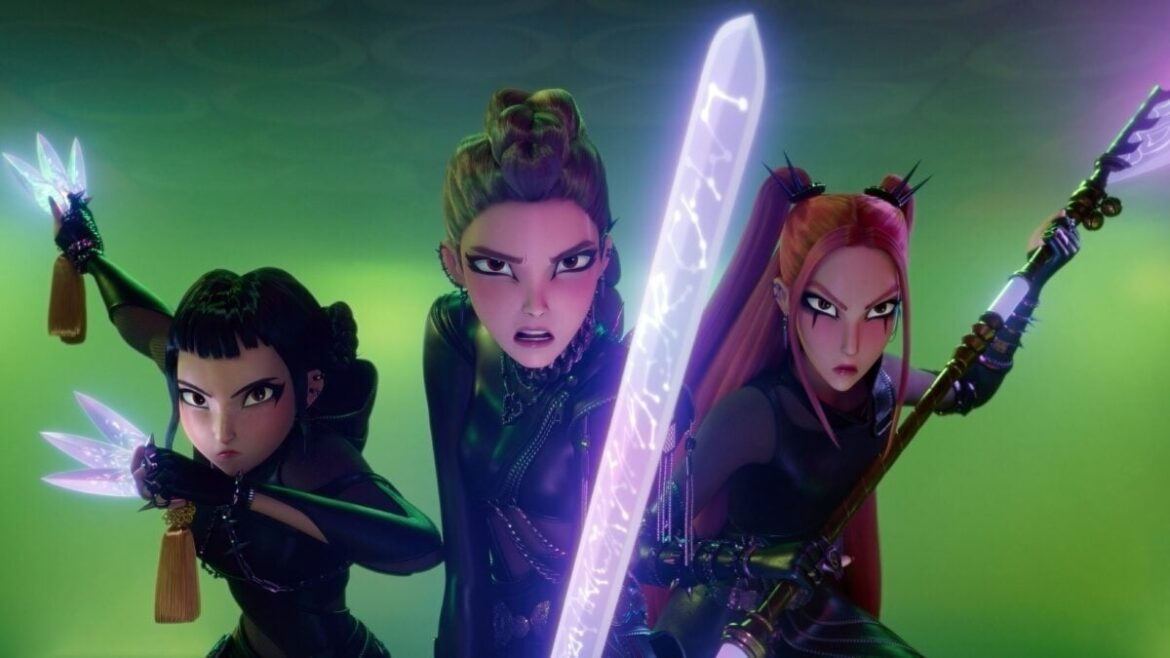It feels like just yesterday that KPop Demon Hunters was only on my radar because the internet was memeing the hell out of one of the musical’s early scenes in which Huntr/x, the fictional girl group that would give Dante from Devil May Cry a run for his money on the demon-slaying front, devours their pre-show snacks in a way that can only be described as bestial. If I had listened to the dismissive jokes, I might have thought the movie was just some goofy animated slop in Netflix’s never-ending content mill and passed on loading it up to see what all the fuss was about. However, even if I hadn’t taken the plunge, KPop Demon Hunters would have become a phenomenon too big to ignore. In the two months since the movie launched on Netflix’s streaming service, the movie Sony was too cautious to release in theaters on its own has become arguably one of the most important moments in pop culture this year. How did we get here? What can we learn from the movie’s resounding success? Given how well the first movie has performed for Netflix, is there any need for the inevitable sequel to do anything differently?
KPop Demon Hunters’ success can be attributed to a few factors, but all of it leads back to it having every advantage in a world where it’s increasingly imperative that a project achieve viral recognition and good word of mouth. Launching on Netflix was undeniably a boon for the film, as kids love to watch movies on repeat, and if an audience readily has easier access to something at home, it feeds The Content Machine. YouTubers can create entire reaction videos from the comfort of their own homes, clips that aren’t just grainy camera recordings in a dark theater can circulate on social media, and its soundtrack of catchy K-pop earworms can be available on streaming the day the movie comes out. Even if its title and premise didn’t grab your attention, KPop Demon Hunters was uniquely positioned to find its audience, and that audience is historically very loud.
© Netflix
The K-pop audience is merely one slice of the pie, however. KPop Demon Hunters’ stunning Spider-Verse-esque animation, anime-inspired action, and Disney-like musicality means that even if the core premise doesn’t appeal to you, the movie probably has something that will catch your eye. As specific as its audience appears on the surface, the film isn’t just gunning for the biggest Twice stan with a Netflix subscription. Casual K-Pop listeners like myself found a lot to love in the film’s story of self-acceptance punctuated by some absolute bangers. The end result is something that transcends K-pop fandom and has rooted itself in the hearts and minds of audiences worldwide.
KPop Demon Hunters is a chart-topping success story on multiple fronts. It’s now Netflix’s most-watched film of all time; topped the box office with limited singalong screenings that the AMC theater chain didn’t even participate in its self-love anthem, “Golden,” has been at the top of the Billboard top 200 for weeks; and the movie’s soundtrack is the first to have four songs in Billboard’s top 10 at once. All of this success with a movie for which Sony made the “safe” choice to have Netflix foot the production bill in exchange for exclusive streaming rights and a split revenue in soundtrack sales. While some, myself included, have called Sony’s decision foolish, given the movie has done nothing but thrive since it arrived on Netflix, there is part of me that wonders if Huntr/x would have become a household name were KPop Demon Hunters not so easily accessible. So much of its spread has been because it is easily clippable, screenshotable, and shareable across social media like TikTok and YouTube. Sony’s hesitation to put the movie in theaters may have been what led to it becoming the viral hit it has.
© Netflix
But what is the source of that hesitation? Is it because someone up top thought K-pop was too niche, or the mix of genres was too off-putting? Or is it just that KPop Demon Hunters was a new property led by women? The film is the latest example of women-led cinema doing huge numbers, and then the rest of the world acting surprised that something ostensibly targeting young girls has an audience. The Barbie movie made over a billion dollars, the Frozen movies are some of the most successful animated films of all time, and we still need astronomical success stories to convince us that there’s demand for women-led films. KPop Demon Hunters is breaking through multiple ceilings both for its own success and to pave the way for others, but only time will tell if anyone actually learns anything from this, or if the film industry’s goldfish brain kicks in again and we forget until the sequel rolls out in a few years.

